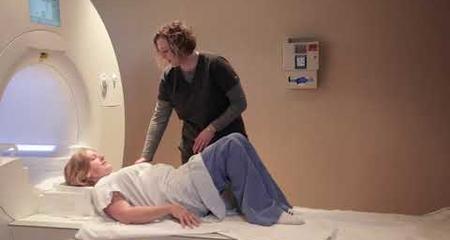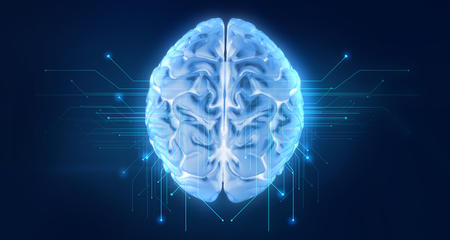What Is Aphasia?
Aphasia is a communication disorder that can affect your ability to speak and understand language. It can also affect your ability to read and write. It is estimated that around 2 million people in the U.S. have aphasia.
It is important to understand that aphasia affects everyone differently, and that having aphasia does not mean a person has lost their intelligence. Changes in mood, particularly depression, are also common in individuals with aphasia.
Aphasia can be a sign of a significant and serious problem, such as a stroke. Seek emergency medical care or dial 911 if you or a loved one suddenly develop any of the following symptoms.
Remember BE FAST — Stroke Symptoms
- Balance. Sudden loss of coordination or balance.
- Eyes. Sudden change in vision.
- Face. Weakness on one side or facial droop.
- Arm or leg. Weakness or numbness.
- Speech difficulty. Slurred or trouble understanding speech.
- Terrible headache. Sudden onset.
For individuals with a diagnosis of aphasia, our team of specialists is here to help you understand your diagnosis and support in your recovery.
Causes of Aphasia
The most common cause of aphasia is a stroke or brain injury to the left side of the brain. Aphasia can also occur from damage to other parts of the brain, but that is less common. The causes of brain damage can vary and include:
- Ischemic and hemorrhagic stroke
- Burst aneurysms
- Infection
- Traumatic brain injury
Aphasia caused by one of these conditions typically does not get worse over time, but rather, you can make continued recovery over the years following the injury or occurrence. Aphasia can also come on gradually from a slow-growing brain tumor or from progressive damage related to dementia — such as language-variant frontal-temporal dementias or primary progressive aphasias.
In cases where aphasia is related to progressive dementia, the aphasia symptoms tend to worsen over time. This therapy focuses on maintenance of preserved language ability and compensatory techniques to support communication.
Aphasia Symptoms
Aphasia affects everyone differently. A person with aphasia may have difficulty with:
- Speaking out loud.
- They may speak in short or incomplete sentences.
- Say words that don’t make sense.
- Say one word when they mean another.
- Have difficulty finding a word they want to say and talk around it.
- Have difficulty moving their lips and tongue to make the correct sounds.
- Speak slowly.
- Understanding what they read and hear.
- They may not understand people’s conversations.
- They may not understand everything they read.
- They may have difficulty recognizing the names of different objects.
- They may be unable to follow instructions.

There are different ways to group symptoms of aphasia based on the language system affected.
- Phonology involves accessing an internal representation of a word's sound, similar to when silently reading and you can “hear” the word in your head without saying it out loud. Any time a person speaks, phonology is accessed and provides the sounds that a person tries to make when speaking out loud — whether that is in response to naming a picture, reading a word, repeating or speaking freely. Phonology is also accessed when writing and spelling.
- Phoneme discrimination is the ability to hear and discriminate individual phonemes, or a unit of sound that can help someone distinguish one word from another. For example, the word cat has 3 phonemes, c, a, and t. This relates to people's ability to hear, understand and repeat speech.
- Semantic processing, or semantics, involves comprehending single words and sentences and recognizing pictures and objects. It involves everything we have learned and know about in the world.
- Syntax processes the grammatical structure and form of sentences that we read, hear, or speak. It relates to the order in which nouns and verbs are placed in a sentence, such as "the dog chased the cat" instead of "it is the cat that was chased by the dog." Sentences like the second example are grammatically correct, but are often harder to process for people with aphasia because there is more information that must be held in working memory making it is easier to mix up the order of events.
- Motor articulation is the ability to easily move the lips and tongue to produce effortless speech.
Types of Aphasia
Everyone has strengths and weaknesses, and these different groupings are how the different aphasia types are classified.
Broca Aphasia
Individuals with Broca aphasia often have difficulty with motor articulation and syntax. This often results in slow, effortful speech anytime they talk aloud. They may also have a harder time understanding long sentences that are grammatically complex because it is difficult to keep all the pieces of information in order. Simple comprehension and semantics are strengths, and they often understand what people say to them.
Wernicke Aphasia
Individuals with Wernicke aphasia often have difficulty with phonology and semantics. They may say words that do not make sense or have difficulty understanding what is said to them. Motor articulation is generally intact and they move their mouth and tongue with ease.
Global Aphasia
Individuals with global aphasia have difficulty speaking and understanding language. The burden of communication is often on the listener to try and guess what is being said, or try and support comprehension. It is the most severe form of aphasia. Global aphasia may be seen immediately after someone has a stroke and it may rapidly improve as people recover, however, with large areas of brain damage, severe disability may occur.
Conduction Aphasia
Individuals with conduction aphasia have difficulty with phonology. They often know the concept of what they want to say but cannot find the right “sounds” to say the word out loud. As such, they often say words they do not mean or substitute the wrong sounds in words. They do not have problems with motor articulation, and they usually understand what is said to them.
Aphasia Related to Dementia
Aphasia may develop slowly over time due to a form of dementia. This is different from when aphasia happens after a brain injury like a stroke or TBI. When aphasia is the result of a dementia, it may be grouped with these terms:
Logopenic Primary Progressive Aphasia
Individuals often have difficulty with phonology and have difficulty finding the correct words. They often have difficulty repeating, but understand what people say to them and do not have difficulty moving their mouth or tongue.
Semantic Primary Progressive Aphasia
Individuals have difficulty understanding or comprehending what they read or hear. They lose the knowledge of information they have learned which results in difficulty to name common objects or understand word meanings.
Nonfluent/Agrammatic Primary Progressive Aphasia
Individuals have difficulty with syntax and motor articulation. They have difficulty understanding complex sentences and may have difficulty moving their mouth and tongue.
Preparing for Your Appointment
If you have a sudden onset of aphasia, this is a medical emergency, and you should call 911.
To help prepare for your appointment, the following may be helpful.
- Bring a support person to your appointment to help support your communication or help remember important details of the visit.
- Make a list medications or supplements you are taking.
- Note when did the aphasia symptoms started.
- Determine if you understand what people say to you.
- Indicate if you have difficulty speaking.
- Provide examples of how your symptoms have gotten progressively worse.
- Explain if the sound of your voice is different to you or if it is harder to move your mouth and tongue.
- Indicate any changes you have noticed in your spelling, writing or reading.
The following may be topics of your visit.
- The cause of your aphasia
- What treatments are available
- What tests are needed
- Whether in-home or outpatient speech therapy may be offered
- Intensive therapy treatment options
- Social work support needs, such as disability applications, health insurance questions or power of attorney questions
For individuals who have a diagnosis of aphasia and are wondering whether or not they should see a doctor at F&MCW, these questions may be helpful.
- Do you have a return-to-work question and want to know if you are ready?
- Are you in school and want to know if there are accommodations that may be made to support you?
- You feel like you are making continued progress. Are other treatment interventions recommended?
- How long has it been since you have seen a doctor for your aphasia? Has it been years?
- Do you feel like your aphasia symptoms are getting worse over time?
Diagnosing Aphasia
Aphasia is diagnosed by clinical symptoms and a comprehensive language and cognitive assessment. This assessment helps determine treatment recommendations and inform therapeutic modality approach.
Cognitive assessment may include:
- Naming pictures
- Repeating words and sentences
- Matching words with pictures
- Describing scenes or a series of events
- Following instructions
- Answering yes/no or open-ended questions
- Reading and writing
- Moving your mouth and tongue
- Attention and focus
- Memory
- Abstract reasoning
Your medical team may also give you a physical and neurological exam to determine the cause of your aphasia. This may include:
- Testing your strength, feeling and reflexes
- Listening to your heart and vessels in your neck
- Neuroimaging, such as a CT or MRI
- Lab tests
Aphasia Treatments
Many individuals with aphasia after brain damage will undergo a period of spontaneous recovery immediately after the time of injury. If aphasia symptoms are very mild initially, you may completely recover or have symptoms so mild that they are not noticeable.
Most people, however, receive speech and language therapy to rehabilitate their aphasia and communication ability. It is important to know that there can be continued recovery even years after continued treatment and intervention.
With therapy, you can recover from aphasia, but recovery is a slow process. Researchers are investigating the use of medications and transcranial brain stimulation, alone or in combination with speech therapy, to examine how it may help people with aphasia. There are research opportunities about aphasia treatments available through Froedtert &MCW health network, and you can learn more about them.
Speech and Language Rehabilitation
The goal of speech and language therapy is to improve functional communication. The therapy focuses on restoring damaged language processes, but also works on techniques to compensate for communication deficiencies.
Therapy is most effective when it starts as early as possible. Speech therapy may be one-on-one with a therapist, include working in a small group or include technology that supports language abilities through computers and phone apps. There are different types of speech and language therapy.
- Semantic feature analysis activates the meaning of words and what we know about an object to help support the retrieval of the name.
- Phonological component analysis activates the individual sounds of a word to help support the word retrieval.
- Phonomotor therapy strengthens the connection between the phonology, or sound of a word, with the motor movements of the mouth and tongue.
- Oral reading for language in aphasia (ORLA) focuses on reading full sentences rather than single words to help improve the rhythm of speech.
- Melodic intonation therapy improves articulation by using intoning (singing) to support speech.
- Augmentative and alternative communication is a device or communication method used to enhance or replace spoken or written communication.
- Verbal network strengthening treatment focuses on verbs to improve word finding to produce a sentence.
Intensive Program for Aphasia Therapy (IPAT)
We offer an intensive speech and language program for individuals with chronic aphasia who want to enhance their communication skills. Treatment includes assessment, 40 hours of individualized therapy and opportunities to participate in research. Individuals need to be medically stable and able to participate in four hours of therapy per day. You will need to complete a registration questionnaire to determine eligibility for the program.
Complete the questionnaire and learn more about IPAT.
Medications
Research is studying the use of different medications for treatment of aphasia. Dopamine agonists, piracetam, amphetamines and anticholinesterase inhibitors have shown varying effectiveness in small studies for the treatment of aphasia.
These medications work via different mechanisms, from improving blood flow to the brain to increasing attention span. More research is needed before these treatments are recommended, but talk with your doctor if you have questions.
Noninvasive Brain Stimulation
Brain stimulation is currently being studied as a treatment method when paired with speech therapy. Transcranial magnetic stimulation uses magnetic fields, and transcranial electrical stimulation uses a weak electrical current to the scalp. Both try to alter the way neurons fire in a specific region of the brain. When paired with speech therapy, these techniques may improve recovery. More research is needed to determine the effectiveness.
Living With Aphasia
Aphasia can be isolating and lonely and it can be challenging to communicate with others. It may affect your ability to return to your previous place of employment, relationships with friends and family may change, and you may need help with day-to-day functions. It’s important to know you are not alone. Our team is there for you when you need it. Our goal is to help you live a meaningful and fulfilling life with aphasia.
- Consider finding ways to engage with other people, such as volunteering.
- Try to manage stress levels. Physician-approved exercise is important for maintaining a healthy brain and your physical health. Exercise can also help with mood and stress.
- Get good, quality sleep. This is important for brain recovery.
- Limit alcohol and avoid smoking or using recreational drugs.
- Let your medical team know if you feel down or depressed, so we can facilitate treatment. People with aphasia can engage in traditional talk-therapy. There are other types of treatment, including medication management, art therapy, music therapy and equine therapy.
These tips may help you communicate with others.
- Carry a card in your wallet that explains what aphasia is and that you have aphasia.
- Carry emergency contact information.
- Carry a smart phone or pencil and paper to support communication.
Caregivers, Support People and Family of Someone With Aphasia
Helping to care for someone with aphasia can be challenging. The dynamics of the relationship can change, and many individuals find themselves in a position they didn’t foresee. Connecting with a support group or meeting other caregivers can be beneficial. National organizations, such as the National Aphasia Association, the American Stroke Association and local community organizations (Medical College of Wisconsin, Marquette and UW-Milwaukee) all have resources for community engagement.
Tips for Aphasia Caregivers
- Speak slowly.
- Try not to yell or increase the volume of your voice if the individual does not seem to understand.
- Repeat yourself without prejudice.
- Be patient.
- Try not to complete the individual’s sentence if they are having difficulty finding a word — unless they ask for assistance.
- Keep sentences short and in the active voice.
- Ask yes-or-no questions if the person is confused with an open-ended question format.
- Use gestures, drawings, pictures and writing to support communication.
Virtual Visits Are Available
Safe and convenient virtual visits by video let you get the care you need via a mobile device, tablet or computer wherever you are. We'll assess your condition and develop a treatment plan right away. To schedule a virtual visit, call 414-777-7700.
BLOGS, PATIENT STORIES, VIDEOS AND CLASSES





